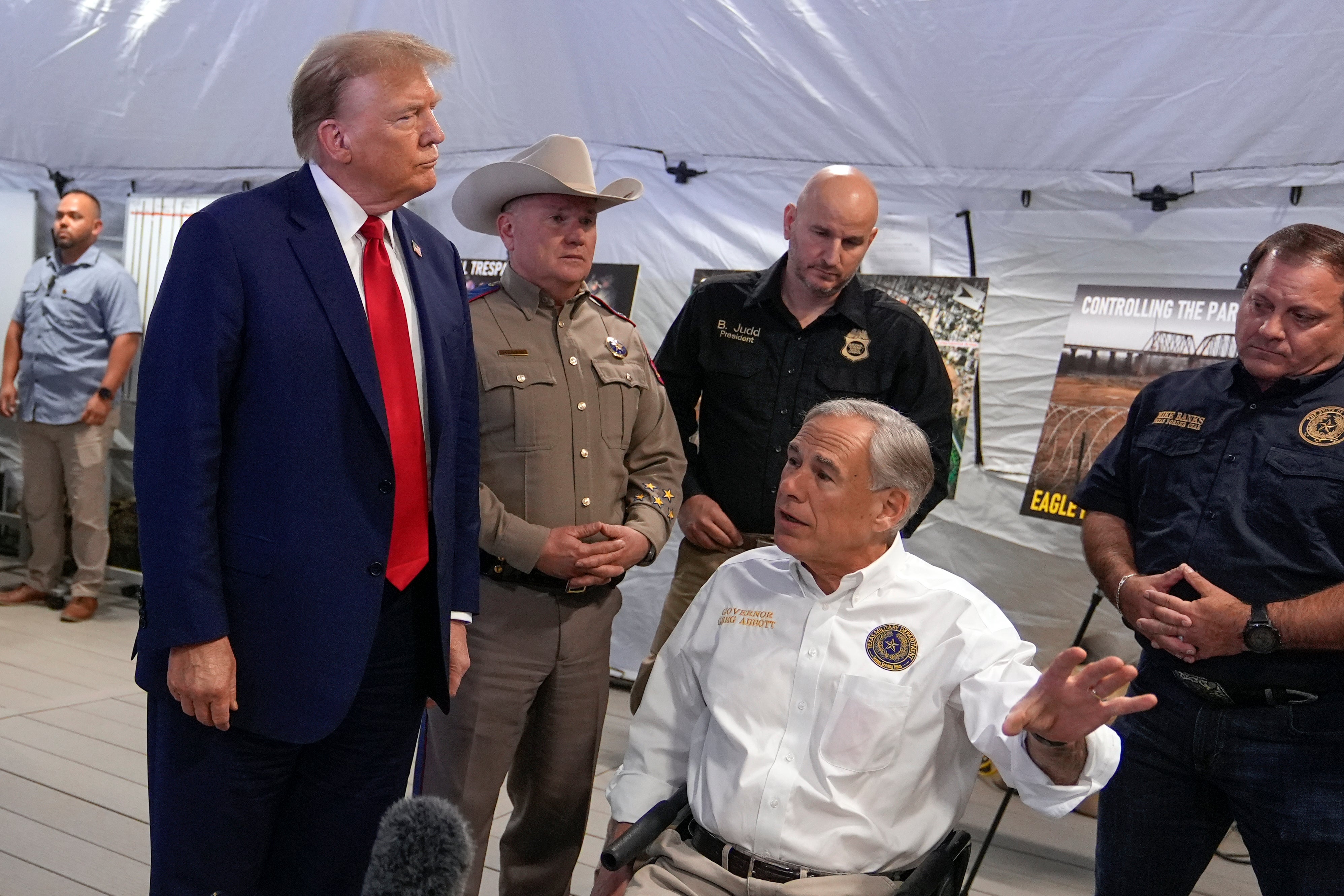What is SB4? The controversial Texas immigration law explained
SB4 gives local law enforcement the authority to arrest and charge migrants crossing the border
A federal appeals court issued an order preventing Texas from implementing a controversial immigration law that would allow state law enforcement to arrest and charge migrants suspected of entering the country illegally.
The ruling arrived just hours after the US Supreme Court gave the state the green light to briefly enforce the law, known as SB4, which would make it a crime for individuals to cross the US–Mexico border illegally.
The state of Texas appealed the Fifth Circuit’s decision to keep the law paused while litigation continues. On Wednesday, the same three-judge panel heard arguments on the constitutionality of SB4.
Here’s what to know about SB4.
What is SB4?
SB4 is a law passed in December 2024 as part of Texas Governor Greg Abbott’s increasingly aggressive anti-immigration policies.
It makes crossing the US-Mexico border illegally through Texas a crime and gives law enforcement the authority to charge those they suspect of doing so with a Class B misdemeanour, which carries a maximum sentence of six months in jail. Second offenders could face second-degree felony charges and up to 20 years in prison.
Will the law go into effect?
For now, the law is on pause.
SB4 was slated to go into effect on 5 March. However, it was blocked in February by a federal district court judge after the government challenged the law.
Texas appealed that injunction to the Fifth Circuit which placed an administrative stay on the district court’s preliminary injunction.
While awaiting a decision from the appeals court, the Biden administration and immigration advocacy groups asked the US Supreme Court to intervene.
The Supreme Court initially echoed the district court ruling, pausing SB4 from taking effect but the court suddenly changed their position and asked the Fifth Circuit to decide before involving the Supreme Court. In that ruling, they removed their stay, allowing the law to go into effect.
Hours later, a three-judge panel from the Fifth Circuit issued another stay on SB4 as litigation continued. Texas appealed that decision and the three-judge panel heard arguments on Wednesday.

Texas argues Constitution authorised state to defend itself
Texas argued that the state was authorised to defend itself under Article I, Section 10 of the Constitution which allows states to engage in war on their own if they are “actually invaded”.
The state says the law was modeled after federal statutes and works complementary to government policy therefore not violating the supremacy clause.
On Wednesday, the Texas solicitor general revived similar arguments as he had previously but notably admitted that the state may have gone “too far” when drafting legislation to remain with Supreme Court precedent.
Government argues law oversteps Texas authority
The Biden administration said the bill conflicts with federal law – typically the government body responsible for immigration enforcement.
Rather than work complementary to US statutes, it would contradict them, making Texas, and potentially other states, responsible for relationships with Mexico when it comes to enforcing immigration laws. The Justice Department warned this could “create chaos” and have “significant” adverse effects on US-Mexico relations.
Immigration advocacy groups have warned that implementing the law would also cause the separation of families and upend processes in place now with no concrete plan to replace those.
“We have long warned that this law will separate families, lead to racial profiling across the state, and harm people across the state as Governor Abbott continues his relentless campaign against people who are immigrants,” the American Civil Liberties Union said in a statement.

Blow against Texas governor
The temporary order comes as a blow against Mr Abbott, who has championed the need for aggressive legislation to deter migrants from crossing the border, with tough penalties for those who do so.
SB4 is just one of Mr Abbott’s numerous legislative moves that seek to curb the number of undocumented immigrants coming into the US from across the state’s border with Mexico.
The legislation has been compared to Arizona’s Senate Bill 1070, the so-called “show me your papers” law that allowed police to arrest anyone they suspected of being an undocumented immigrant.
The Supreme Court partially struck down SB1070 in 2012 but upheld a provision permitting police to demand anyone they believe to be undocumented to hand over their papers. Much like with Arizona’s SB1070, opponents of SB4 say the law would likely be rooted in racial profiling.
Join our commenting forum
Join thought-provoking conversations, follow other Independent readers and see their replies
Comments
Bookmark popover
Removed from bookmarks